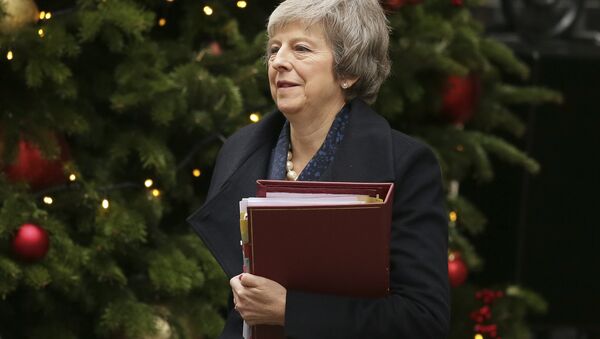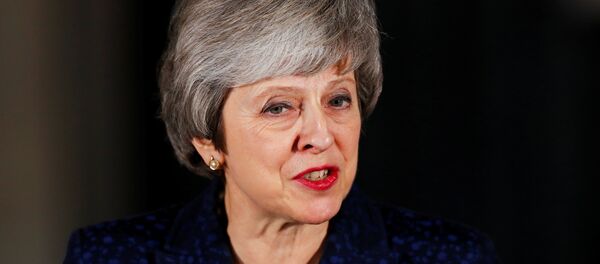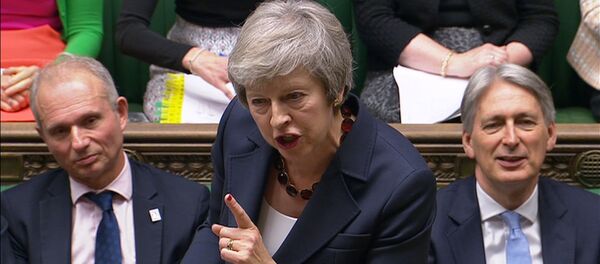Sputnik has discussed this with James Downes, a Professor in Comparative Politics at the Chinese University of Hong Kong.
Sputnik: Now that this vote took place-what's next?
The next act in the Brexit play will be for Prime Minister Theresa May to go back to Brussels and seek to renegotiate her current Brexit deal. This will be no easy task and there are no guarantees that she will be able to renegotiate key issues such as the Backstop arrangement with Northern Ireland. If the Prime Minister does come back empty handed to Parliament, then it is conceivable that the opposition party, the Labour Party may seek to call a Vote of No Confidence in the Government and bring it down, with support of other opposition parties, such as the Scottish National Party and the Liberal Democrats.
However, the Labour Party under Jeremy Corbyn is also deeply divided on Brexit. Key divides have emerged on the Brexit issue between the Parliamentary Party and the wider electorate of the Labour Party. These divides will not go away anytime soon.
READ MORE: ‘British Parliament Would Never Accept Any Deal From Theresa May' — Analyst
Just because May won the vote yesterday does not mean that her Brexit deal with now pass in the UK House of Commons, nor does it mean that the EU will acquiesce and allow her an extended transition deal on Article 50. The general perception of British voters is completely different to the Conservative Parliamentary Party and they may now view Theresa May as a ‘lame duck' Prime Minister.
Sputnik: Many Tories who would like to see May ousted are hard Brexiteers. Removing May has the potential of stalling the Brexit process. What do they actually stand to gain?
At the same time, other hard line Brexiteers would rather see a No Deal scenario on the 29th March 2019, with Britain leaving the EU and effectively trading on World Trade Organization rules, rather than accepting the current Brexit arrangement that they view as a "fudge." The EU issue has long divided the UK Conservative Parliamentary Party and now threatens to completely split the party apart in the coming months ahead.
It is important to note that these ideological divides do not just cut across Brexiteers, but also amongst Remainers within the wider Conservative Party. Furthermore, by winning the No Confidence vote, this further serves to show the weakness of Brexiteers within the wider Conservative Parliamentary Party.
Sputnik: Following Theresa May's attempt to renegotiate something with European leaders, you have said that she was in a fantasy land. With the current situation in the Parliament where she is struggling to gain support from her own party, what options does she actually have?
James Downes: Effectively the only option that the Prime Minister currently has now is to go to Brussels today and urge key EU leaders to compromise on issues such as the Irish Backstop and other legal issues in the Withdrawal Agreement.
READ MORE: Who Wants Poison Chalice? If May Loses Who Are Contenders For Tory Leadership?
There is now a very real possibility that if May fails in her demands, then a People's Vote (Second Referendum) could potentially be tabled. There has been talk of a second referendum and then another third option of a General Election. But the problem with all of these options is that there's just not enough time before Article 50 expires.
Sputnik: With the division thriving within the Parliament doesn't it make easier for the EU to abuse the negotiation process?
James Downes: The EU27 will be extremely cautious about their next steps, particularly as the UK Brexit situation is a fast paced situation which requires great diplomatic care and treading carefully on the EU's side. In my view, the EU will adopt diplomatic policies and will not seek to abuse or undermine the current negotiation process with the UK.
Her Brexiteer rebels may be weakened after yesterday's failed vote, but it is extremely unlikely that the EU will budge significantly on allowing more concessions to the UK on the Brexit Withdrawal Act. The EU are unwilling to budge on any reform proposals, especially in regard to the Backstop arrangement with Northern Ireland, or on the single market and freedom of movement. Thus, May is still stuck in a ‘Catch 22' situation from all sides and now faces a desperately difficult situation.
Sputnik: Long-term implications for British Democracy?
James Downes: If a second Referendum was held or Article 50 was revoked, this is likely to further exacerbate polarization within the United Kingdom and further undermine the trust of British citizens in British democracy (both Leavers and Remainers) and overall trust in politicians. My main argument is that we should not be worrying about the short-term economic consequences of Brexit, but the long-term political implications for democracy in Britain.
READ MORE: ‘The Best Skill Theresa May Has Got is Kicking a Can Down the Road' — Scholar
The views expressed in this article are solely those of James Downes and do not necessarily reflect the official position of Sputnik.








